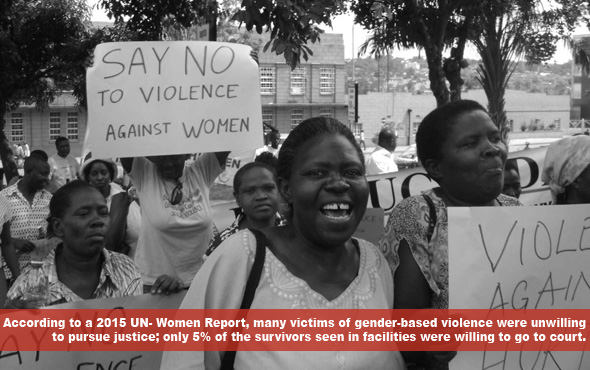Sexual and Gender-based Violence (SGBV) is a pervasive issue that affects individuals worldwide, transcending cultural, economic, and geographic boundaries.
In Kenya, as in many other nations, the prevalence of SGBV underscores the urgent need for specialized legal mechanisms to address these crimes. One significant step towards combating this societal ill is the establishment of Sexual And Gender-Based Violence Courts dedicated to handling cases related to violence against women and other gender minorities.
In a recent conversation with Shanzu Law Courts Magistrate Honorable Joe Omido, so far, Kenya has 11 SGBV courts and with the prevalence of such cases, continued efforts need to be put in to fast track the process of establishing more GBV courts.
Sexual And Gender-Based Violence in Kenya
Kenya, like many countries, faces a considerable challenge in tackling Sexual and gender-based violence. According to a 2014 survey by the Kenya National Bureau of Statistics, 45 percent of women aged between 15 and 49 years have experienced either physical or sexual violence.
This alarming statistic highlights the pressing need for a specialized legal framework to address Sexual and gender-based crimes and deliver justice to the survivors.
While Kenya has made strides in enacting legislation to protect victims of gender-based violence, the existing legal framework often falls short in delivering swift and effective justice.
The conventional court system may be overwhelmed with a backlog of cases, resulting in delays that further traumatize survivors and discourage reporting.
Sexual and Gender-Based Violence Courts can play a crucial role in expediting the legal process and ensuring that cases are treated with the urgency and sensitivity they demand.
Specialized Training for Judicial Personnel
Sexual and Gender-Based Violence Courts necessitate the appointment and training of judges, prosecutors, and other court staff who are well-versed in the nuances of gender-based crimes.
This specialized training is essential for understanding the complexities of such cases, including the power dynamics, trauma-informed approaches, and the specific legal frameworks designed to protect survivors.
By having dedicated personnel, the courts can create an environment that fosters empathy and understanding, contributing to a more just and compassionate legal process.
Establishing Sexual and Gender-Based Violence Courts allows for the streamlining of legal procedures, ensuring that cases are heard promptly and efficiently. This can significantly reduce the time survivors spend navigating the legal system, minimizing the risk of retraumatization and improving their overall experience.
Timely justice is crucial not only for the survivors but also for deterring potential perpetrators and sending a clear message that gender-based violence will not be tolerated.
Holistic Support for Survivors
Beyond the legal process, Sexual and Gender-Based Violence Courts can serve as hubs for comprehensive support services. These may include counselling, medical assistance, and resources for economic empowerment.
By centralizing these services within the court system, survivors can access the support they need in a coordinated manner, fostering their recovery and resilience.
In conclusion, the establishment of Sexual and Gender-Based Violence Courts in Kenya is a critical step towards addressing the pervasive issue of gender-based violence. Through specialized training, streamlined legal procedures, and holistic support services, these courts can contribute to a more effective and survivor-centric approach to justice.
By prioritizing the needs of survivors and holding perpetrators accountable, Kenya can create a legal framework that reflects its commitment to eradicating Sexual and gender-based violence and fostering a safer and more equitable society.



